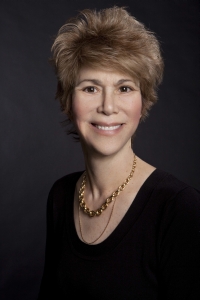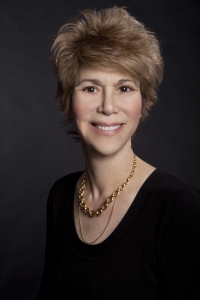Language Challenged in France
- SUBSCRIBE
- ALREADY SUBSCRIBED?
BECOME A BONJOUR PARIS MEMBER
Gain full access to our collection of over 5,000 articles and bring the City of Light into your life. Just 60 USD per year.
Find out why you should become a member here.
Sign in
Fill in your credentials below.
 One of the most frequent questions Anglophones ask is whether they’ll be able to manage in France if they don’t speak the language.
One of the most frequent questions Anglophones ask is whether they’ll be able to manage in France if they don’t speak the language.
My advice has been (and will continue to be) that people should attempt to learn some rudimentary French before traveling here. You know, bonjour, au revoir, s’il vous plaît, pouvez-vous me donner les indications, and, naturally, merci.
If nothing else, it’s only polite and indicates you’re making an effort not to have the “here I am, I am a tourist, help me out” attitude and it’s up to the French to speak English. Unlike Holland, where the Dutch long ago realized no one was going to bother to learn their language and so they all learned English, the French didn’t feel it was a necessity to learn anything other than French since, once upon a time, it was assumed to be the language of diplomacy and general all-around classiness.
Well, those days may be coming to an end and there’s no question that some members of L’Académie française (not yet all deceased) are turning over in their graves. Good thing that Cardinal Richelieu, who founded the organization in 1635, isn’t around to see how French is becoming Franglais—and lots of other bits and pieces are chipping off the monument of la gloire française, too.
Why the change? First and foremost, English is the de facto language of aviation, the Internet, and business. Graduate schools such as INSEAD (“The Business School of the World”) conduct classes in English. No longer do people have to cross the English Channel or the Atlantic to be prepped to do big-bang deals.
An increasing number of Parisians speak English, including the butcher, the baker and the Bon Marché salesgirl. Initially gradual, English speaking has picked up momentum with the advent of the Internet. Now more English language movies are being shown in V.O., or original version, not with some wonderfully (or weirdly) translated French subtitles. Relatively few films are dubbed these days. Plus, today’s music (that is, music with lyrics) tends to be English or a form of it.
Now the French Education Minister, Luc Chatel, has declared he wants to “reinvent English teaching” in schools. His plan involves teaching English to children beginning when they’re three years old.
Chatel contends the trials, which have already been conducted, prove that the “sooner children begin to learn English, the easier it will be for them to learn additional languages,” adding that English is a priority. The debate has already begun as to who is going to teach children English, since the French education system is feeling the financial squeeze, and to who’s going to pay for the additional education?
The Minister of Education has indicated that teaching English via the Internet or “E-learning” is a real probability. Another future component of learning languages, he said, would be “mobility” in schools, and he expressed the wish that “each school and high school should have a twinned school or high school in Germany, England or the United States” so that at the age of 18 “every child has spent at least some time in another country.”
OK, so this is a big official step. But the reality is that speaking French in Paris and certainly in quartiers that tourists frequent has become considerably more difficult in recent years. Last week when I was inspecting hotels on Paris’s Left Bank, I must have had “Anglophone” tattooed on my forehead. The moment I walked in to see which hotels had done what, asked to inspect some rooms or even for a brochure, the person manning the desk responded to my request (made in French) in English.
Granted, this is the hospitality industry and the French government has asked people to master enough English to be able to communicate with foreigners from around the world. Granted, also, that as soon as I say Bonjour, the cat’s out of the bag.
But, who’d expect clerks in grocery stores to want to practice their English on me? My French isn’t that bad. Honestly. Ordering a glass of wine in French posed such a challenge in café after café that as soon the barman answered in English, my response was “Non merci” and off I went to the next bar.
I finally scored a glass of Bordeaux (by this time, I needed a drink) and was sipping it feeling a modicum of victory. As I took my second taste, the French gentleman standing next to me asked what I thought of the aroma. He was being pleasant (bless him) and must have immediately labeled me as a rude American when I ungraciously responded in French that the bouquet was convenable, which means anything from adequate to more than satisfactory. It’s a French expression that has many meanings depending on the time, place and the moment.
I am determined that I’m going to learn first-rate French and may have to spend a year in la France profonde. But, come to think of it, I already did that when we had a house in Provence and my language skills were only marginally better and my accent was more Provençal, which the French think is Italian, than American.
I have this sinking feeling that by the time (or if) I learn to speak eloquent French, it may be hard to find many Parisians with whom to speak. Well, maybe…
(c) Paris New Media, LLC
Or, maybe I’ll learn French using a Kindle. OR –
If you need an Apple MacBook — buy it here. To buy an IPod…
If you’re coming to France and want to remove the stress out of any and all planning, dynamo Lisa Buros-Hutchins of www.YourParisExperience.com can arrange anything and everything, including planning your honeymoon and/or making dinner reservations. Nothing is beyond her. Say Bonjour Paris referred you and put her to the test of making your stay in France perfect.
Please don’t leave home without:
Medjet Assist. As a member of MedjetAssist, if you become hospitalized as an inpatient more than 150 miles from home, you will be transported at your discretion to the hospital of your choice from virtually anywhere in the world – at no additional cost. Domestic air medical evacuations average $20,000 while international medical evacuations can exceed $100,000 – but not with the protection of MedjetAssist.
More in cultural differences, French etiquette, Hotels, karen fawcett, Paris, Provence




